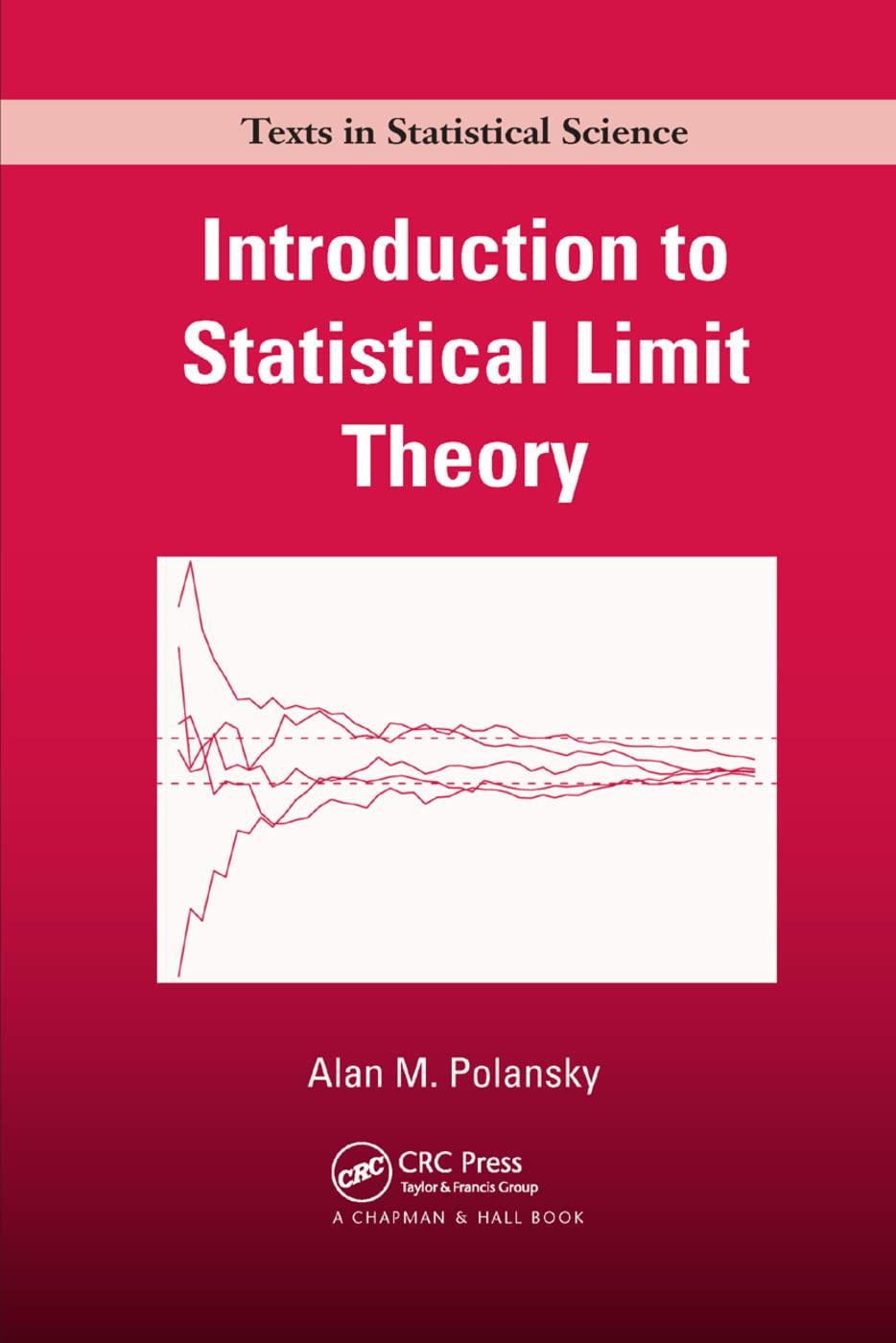Let (X_{1}, ldots, X_{n}) be a sequence of independent and identically distributed random variables that have an
Question:
Let \(X_{1}, \ldots, X_{n}\) be a sequence of independent and identically distributed random variables that have an \(\operatorname{ExponentiaL}(\theta)\) distribution for all \(n \in \mathbb{N}\). Consider testing the null hypothesis \(H_{0}: \theta \leq \theta_{0}\) against the alternative hypothesis \(H_{1}: \theta>\theta_{0}\) for some \(\theta \in \mathbb{R}\). This model falls within the smooth function model. When \(n\) is large it is often suggested that rejecting the null hypothesis when \(T_{n}=n^{1 / 2} \hat{\sigma}_{n}^{-1}\left(\bar{X}_{n}-\theta_{0}ight)>z_{1-\alpha}\), where \(\hat{\sigma}_{n}^{2}\) is the unbiased version of the sample variance, is a test that is approximately valid. Find an asymptotic expansion for the accuracy of this approximate test.
Step by Step Answer:






